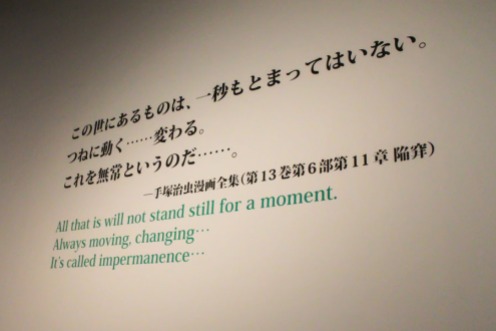24 June 2011
Starting early in the morning, we walk toward the Ikebukuro Station and grab some breakfast in a nearby convenient mini store. The air is a bit crispy dry and cool. Sometimes we can hear the chime of the bicycle bell and a soft ‘sumimasen‘. Note that we share the pedestrian on the sidewalk with the residents using bicycle, so it’s advisable to keep walking on the ‘right’ side of the side walk. We take the JR Yamanote line from Ikebukuro station to Ueno station.
The morning commuter trains are very crowded. Word of advice: take your time, no hurry because the train comes in every 3-5 minutes. Although some maps in the station are in kanji, some maps and direction signs have Romanji and English so it’s easy to go from one place to another.
Ueno Park (上野公園, Ueno Kōen) situated right across the Ueno station. The park is famous hot spot for Hanami (flowers viewing) during Spring. It boasts rows of Sakura (cherry blossoms) in full bloom on the early April.
We opt to see the exhibition from Osamu Tezuka’s manga, Buddha, for ¥800, including the entrance fee to the The Tokyo National Museum (東京国立博物館 Tōkyō Kokuritsu Hakubutsukan). As a fan of him and a manga reader, I’m quite curious to see the original paper/comic.



Buddha – The Story in Manga and Art (April 26 – June 26, 2011) is part of the Honkan’s Special Exhibition and we’re lucky to see it. Aside from the information about the exhibition it self, we’re able to see Osamu Tezuka’s Buddha (ブッダ) in manga format.
The exhibition showcase the 50 original pieces from Tezuka-sensei’s manga and 20 Buddhists sculptures depicted the life of Buddha from birth until death.
Here, the audience can see the difference between the manga and the sculptures from various places around the world in various incarnations. What interesting as well, we can see each page in glass frame complete with eraser marks, whitening/correction liquid and printed text over penciled dialogs and comments in Japanese. On the other hand, some of the sculptures are full on display, made from various materials such as bronze, marbles, stone and wood.
We can’t take photos further inside unfortunately.

Japan Trip 2011:
Tokyo:
Buddha – The Story in Manga and Art at Tokyo National Museum
Japan Cultural Heritage and Contemporary Art at Tokyo National Museum
Kamakura:
Hakone:
Kyoto:
A Thousand Steps to Discover Kyoto
Nara:
Yokohama:


5 Comments Add yours